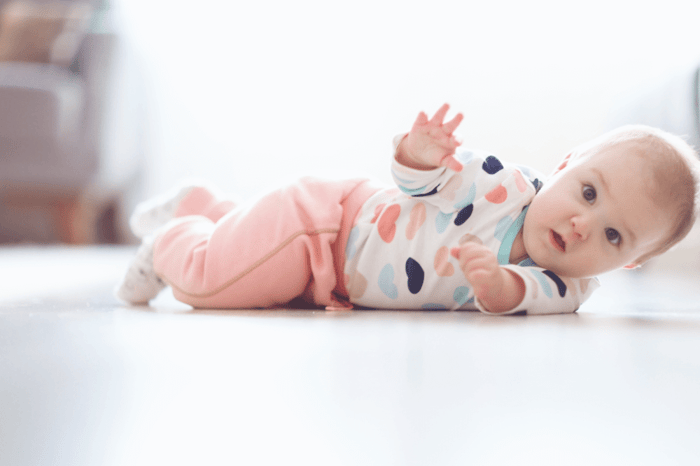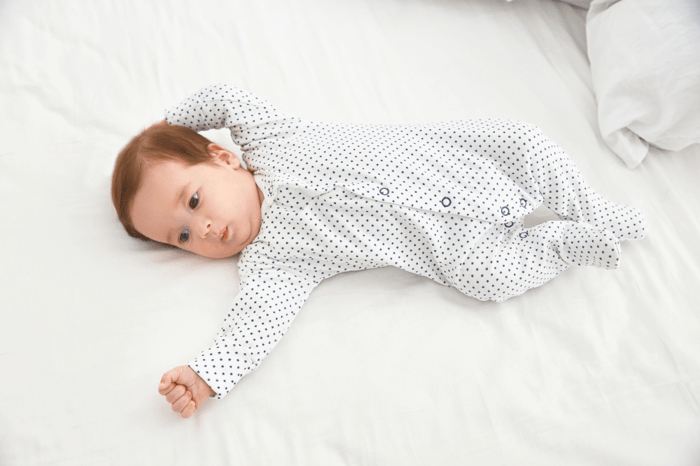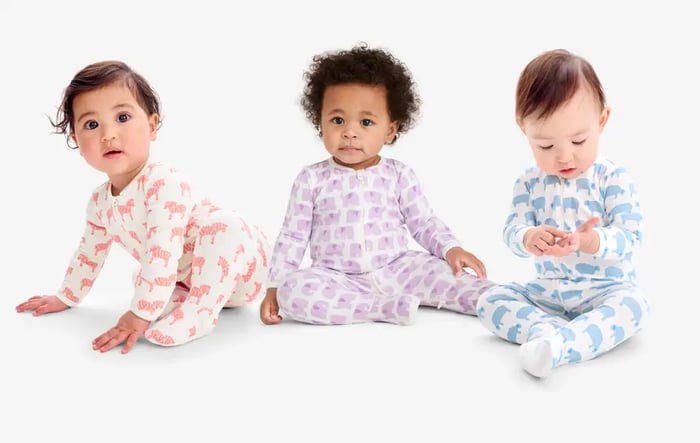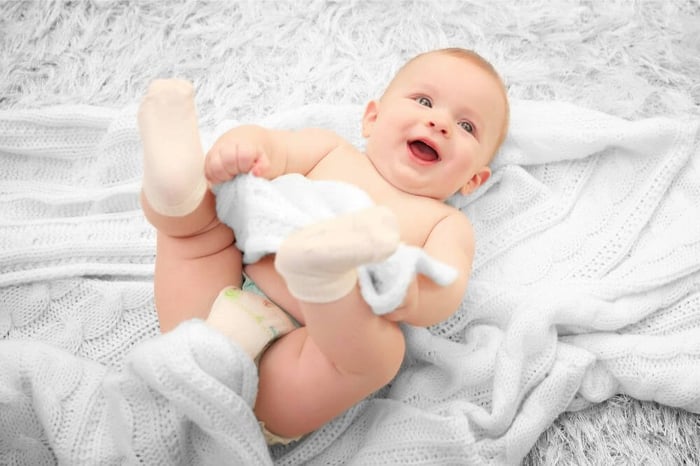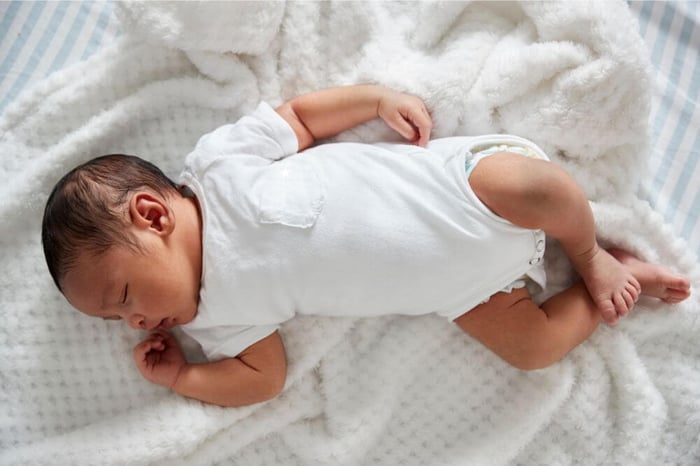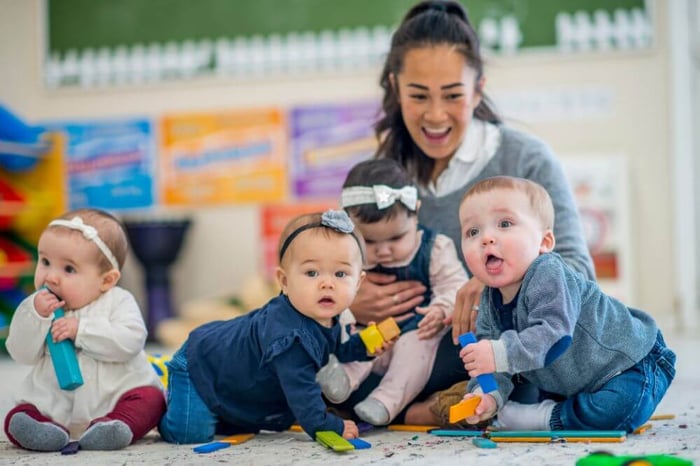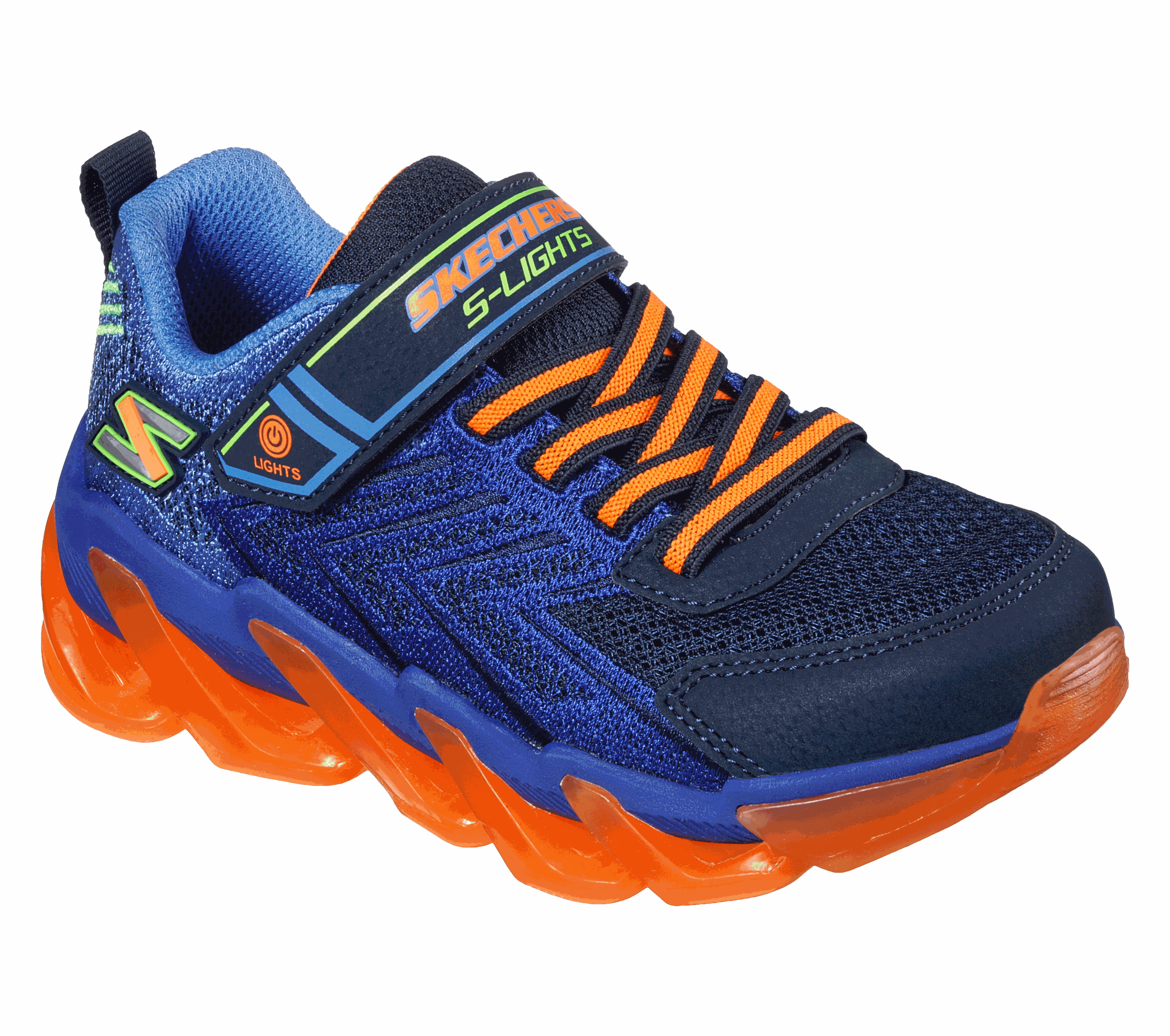When Do Babies Start Rolling Over? Are you about to move with your baby for the first time? Rolling over is a thrilling achievement that signifies the onset of mobility in your infant. But when does it happen, and how can you support your child during this phase?
The majority of babies start rolling between four to six months old. However, some might stun you at three, while others may take as long as seven before they finally do so. Both situations are within the range of normal development.
The Rolling Timeline: What to Expect
While many infants start rolling over around 4–6 months, some precocious babies may astonish their parents by doing so as early as three months, while others may take up to 7 months before they start rolling over. It’s important to remember that these two scenarios lie within the normal range of development.
In most cases, infants roll from tummy to back first. This is easier because it utilizes their innate startle reflexes. Rolling from back to stomach often follows slightly later since progressively more strength and coordination are required.
Remember, every baby is different; he or she will get there in due time, and there is usually no need for undue haste.
Signs Your Baby is Getting Ready to Roll
Babies don’t suddenly decide one day that they want to flip themselves over; however, there are various skills they tend to develop in the weeks before mastering this milestone:
- Lifting head and chest during ‘tummy time’
- Tummy time with push-ups on arms
- Kicking legs more actively and moving arms about more vigorously
- Rocking side-to-side while on the back
- Turning head towards sounds or objects
If your baby does any of these things, then crawling could be just around the corner!
The Importance of Tummy Time
Tummy-time helps babies build muscles necessary for rolling over, among other activities, thus enhancing strength and coordination in them. It strengthens the neck, arm, and core muscles, which are crucial for this milestone.
Start off with 3-5 minute sessions, a few times each day. As your baby gets stronger and more comfortable, gradually increase the time period. Make tummy time enjoyable by getting down on their level, providing toys, or singing songs.
During tummy time your baby may become fussy – it is normal. Many babies do not like it initially. Keep the sessions brief and positive, and most likely, your little one will start to enjoy this important playtime.
Safety First: Preparing for a Rolling Baby
Once you notice that your child has started rolling, it is time to rethink on how to protect him/her from various risks around the house. A baby who can roll is a baby who could potentially fall off surfaces they were once safely placed on.
Regardless of whether or not they have ever rolled over before, never leave your infant alone on a changing table, bed, or other elevated surfaces. In fact, babies seem to take joy in doing new things exactly at those moments when you least expect them to!
If you’ve been using swaddles, then it's high time you phased them out as well. This is because when swaddled, babies cannot use their arms to shift themselves after rolling over, therefore posing a potential threat.
Rolling Encouragement: Hints and Advice
But remember not to rush your baby's development; there are things you can do that will help them learn how to roll over:
- While playing, place toys a little too far away from the baby so that he/she can move towards them.
- During diaper changes, gently rock the child from side to side.
- Take your baby through the rolls by holding him/her during practice.
- Therefore, it should always be entertaining since it must never be into posing your baby in relaxation.
If my Baby Does Not Roll Over?
One cannot fail to inform the pediatrician if your baby has reached seven months and has not rolled over yet. However, most of these cases are not supposed to cause panic as there can be many factors that contribute to this condition. Some babies simply prioritize other skills first, like sitting up or crawling.
After the roll: what comes next?
Once your baby masters rolling, a whole new world of movement opens up! This may be followed by:
- Sitting up unassisted
- Crawling
- Pulling up to stand
Each of these milestones builds on the strength and coordination developed through rolling. It’s an exciting time of rapid development and discovery for your little one.
Dressing for Success: Rolling-Friendly Outfits
Like any other aspect of life, baby's mobility changes as they grow older. Look for clothes that allow free movement without bunching or restricting their rolls.
Soft fabrics with stretch are ideal. Footie pajamas with non-slip soles can also work well when it comes to playtime since they provide warmth and freedom of movement.
Celebrating the Milestone
Your baby’s first roll is a moment worth celebrating! It’s just another sign that he/she is growing stronger and more independent day by day. Try capturing this memorable event using a camera if you can get one.
Although it is normal for parents to compare their child's progress against others, every child develops differently at his/her own pace; hence, celebrate your baby's individual journey, including all those small victories along the way.
The Role Sleep Plays in Rolling Over
Sleep contributes significantly towards proper growth of your infant whereby rolling over is part of it. When babies are asleep, they process information and experiences of the day which consolidates learning as well as physical skill.
As your baby approaches the rolling milestone, you might notice changes in their sleep patterns. Some babies become more restless, practicing their new skills even in their sleep. You might just find your little one in a different position than how you left them!
Dr Sarah Johnson, a pediatric sleep specialist, says "Sleep regressions" often coincide with major developmental milestones like rolling over. Mastering this new skill requires that your baby's brain works overtime, leading to increased night wakings or shorter naps.”
To support your baby’s sleep during this transition:
Keep the bedtime routine constant so that it indicates time for winding down, regardless of whether the body is ready for practice or not.
Make sure there are no loose bedding or toys on the crib when a baby starts to roll.
Once your child shows signs they can roll over, consider using a sleep sack instead of a swaddle so that you still offer them the snugness they love while allowing for free movement.
Just be patient because disruptions in sleep time at this stage are usually temporary and will improve once your baby masters rolling.
Note that while it is important to put sleeping babies on their backs to minimize SIDS risk after an infant can roll over independently, it is okay if he/she finds his/her own sleeping position.” Always consult with your pediatrician if you have concerns about your baby's sleep safety.”
The Effect of Rolling on Cognitive Development.
Rolling over is not simply a physical milestone; rather, it also contributes to your baby’s cognitive development. It is quite obvious that this act, which at first glance seems very simple, completely changes your concept of the world!
When children start rolling, they develop an understanding of cause and effect. They become conscious that what they do can have some effects. This knowledge forms the basis for problem-solving abilities.
Additionally, rolling over also helps develop spatial intelligence for children. As the child learns different ways of moving his or her body, he or she starts developing ideas such as 'up,' 'down,' 'over', and 'under.' This awareness of space is vital in later skills acquisition like standing, walking and even literacy.
Dr. Maria Rodriguez, a child development psychologist, says,
"Rolling over gives babies an opportunity to feel independent. They change from being static observers of their surroundings to active participants in them. The shift boosts their confidence and encourages them to explore further, which is necessary for cognitive growth.”
To Support Cognitive Development During Rolling
- Give plenty of floor time under supervision to your baby so that they can explore and practice this new skill.
- Offer toys that promote reaching and grasping; however, the reach must be beyond their limit.
- While talking about what your baby is doing, use simple descriptions like 'you have reached out for the rattle; now you are rolling so that you can get it!’”
- Rather than celebrating only when successful rolls are made, appreciate every effort. It will motivate the persistence and endurance of your infant.
Remember, each role means learning and brain growth, whether it looks like just plain playtime or not!
Rolling as Social-Emotional Development
Believe it or not, learning how to roll over could actually affect a lot on your baby's social-emotional development. Along with this milestone usually comes growing self-consciousness about one's body ability, leading to interesting changes in personality and interaction with other people by the baby.
Often, when babies master rolling over, there is an increase in confidence levels. Doing something all on their own for the first time can be really exciting and satisfying for them! You might notice more smiles, laughs, and proud coos whenever they successfully manage to roll over.
This new skill changes how babies relate with those who take care of them, too. They can initiate a game of peek-a-boo by rolling away and back or even rolling to you for comfort. These actions indicate an increasing understanding of social interaction and cause-effect relationships in their environment.
Dr. Alex Thompson, a child psychologist, explains that;
"Rolling over is often the first thing that babies do when they start to exert some level of control over their lives. This shows them that they have some sort of power to change things around them, which are vital in emotional development and self-esteem.”
Conclusion: Rolling into the Future
However, the journey towards mobility begins with rolling over. It is one such stage or event which speaks about their increased strength, coordination as well as curiosity about what's taking place around them.
As your baby grows older and more mobile, his/her clothing needs will also change. At Jenni Kidz, we understand that comfortable movement clothes are important for growing babies. Our variety of soft, stretchy outfits are perfect for little ones on the go!
Why not browse through our collection to find that special outfit for your rolling superstar?
Enjoy this exciting time in your baby's development. They will be crawling, walking, and running into new adventures before you know it. Enjoy every single moment along the way!

